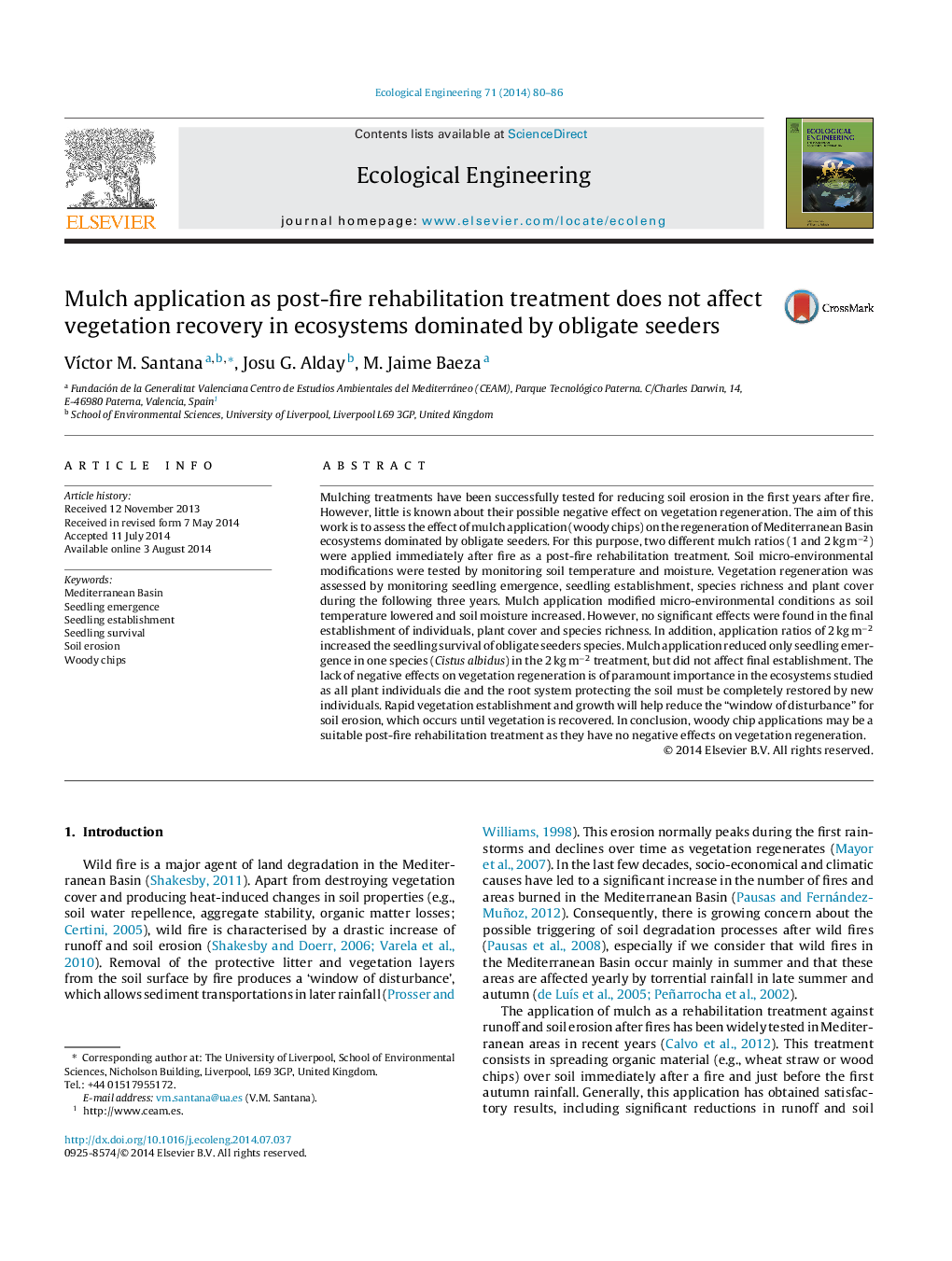| کد مقاله | کد نشریه | سال انتشار | مقاله انگلیسی | نسخه تمام متن |
|---|---|---|---|---|
| 4389140 | 1618028 | 2014 | 7 صفحه PDF | دانلود رایگان |
عنوان انگلیسی مقاله ISI
Mulch application as post-fire rehabilitation treatment does not affect vegetation recovery in ecosystems dominated by obligate seeders
ترجمه فارسی عنوان
استفاده از مالچ به عنوان درمان پس از آتش توانبخشی بر روی رشد گیاهان در اکوسیستم های تحت سلطه نشاسته اجباری تاثیر نمی گذارد
دانلود مقاله + سفارش ترجمه
دانلود مقاله ISI انگلیسی
رایگان برای ایرانیان
کلمات کلیدی
حوضه مدیترانه، ظهور نهال، تأسیس نهال، بقاء نهال، فرسایش خاک، تراشه وودی
موضوعات مرتبط
علوم زیستی و بیوفناوری
علوم کشاورزی و بیولوژیک
بوم شناسی، تکامل، رفتار و سامانه شناسی
چکیده انگلیسی
Mulching treatments have been successfully tested for reducing soil erosion in the first years after fire. However, little is known about their possible negative effect on vegetation regeneration. The aim of this work is to assess the effect of mulch application (woody chips) on the regeneration of Mediterranean Basin ecosystems dominated by obligate seeders. For this purpose, two different mulch ratios (1 and 2 kg mâ2) were applied immediately after fire as a post-fire rehabilitation treatment. Soil micro-environmental modifications were tested by monitoring soil temperature and moisture. Vegetation regeneration was assessed by monitoring seedling emergence, seedling establishment, species richness and plant cover during the following three years. Mulch application modified micro-environmental conditions as soil temperature lowered and soil moisture increased. However, no significant effects were found in the final establishment of individuals, plant cover and species richness. In addition, application ratios of 2 kg mâ2 increased the seedling survival of obligate seeders species. Mulch application reduced only seedling emergence in one species (Cistus albidus) in the 2 kg mâ2 treatment, but did not affect final establishment. The lack of negative effects on vegetation regeneration is of paramount importance in the ecosystems studied as all plant individuals die and the root system protecting the soil must be completely restored by new individuals. Rapid vegetation establishment and growth will help reduce the “window of disturbance” for soil erosion, which occurs until vegetation is recovered. In conclusion, woody chip applications may be a suitable post-fire rehabilitation treatment as they have no negative effects on vegetation regeneration.
ناشر
Database: Elsevier - ScienceDirect (ساینس دایرکت)
Journal: Ecological Engineering - Volume 71, October 2014, Pages 80-86
Journal: Ecological Engineering - Volume 71, October 2014, Pages 80-86
نویسندگان
VÃctor M. Santana, Josu G. Alday, M. Jaime Baeza,
